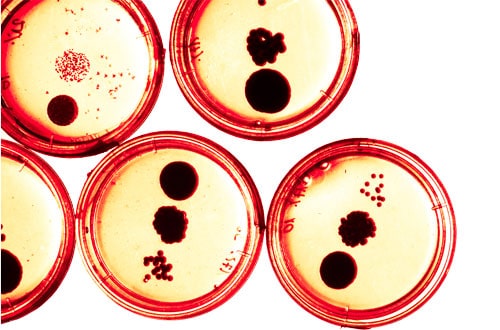
Research into antimicrobial resistance (AMR) is under threat, despite the life sciences industry investing over $2bn in 2016 to tackle the global health threat, according to a new report.
The AMR Industry Alliance said urgent action is needed to address economic challenges to R&D in areas such as antibiotics, vaccines, diagnostics and therapeutic agents. It says that any ‘pull incentives’ put in place must be sustainable and sufficient to stimulate R&D across the full R&D lifecycle.
Releasing its first progress report since its formation last year, the industry-wide Alliance also said more work was needed in two other important areas, those of appropriate use of and appropriate access to antibiotics.
When it comes to access, vast amounts of antibiotics are taken by patients and animals that don’t need them, while at the same time almost six million people die each year from infections because they don’t have access to these medicines.
There was more positive news seen in the Alliance’s commitment to reduce the potential impact of antibiotics manufacturing on AMR, with progress seen in assessing the impact of internal manufacturing and supply chain on AMR.
As part of this a number of companies have put in place sound environmental management practices at their own facilities and established environmental management expectations of suppliers, the Alliance said.
An estimated 700,000 deaths each year are attributed to AMR, with that figure predicted to rise to 10 million by 2050 if action is not taken.
The Alliance, numbers 101 pharma, biotech, diagnostics and generics companies among its members, surveyed over a third of them as part of the progress report.
More than three-quarters of the 36 respondents had one or more AMR-relevant product in late-stage development in the last five years. Current pipelines include 10 antibiotics that work against WHO and CDC priority threats, 13 vaccine candidates and 18 diagnostic products.
Thomas Cueni, director general of global pharma trade body the IFPMA, said: “The first AMR Industry Alliance Progress Report demonstrates the commitment of the research-based biopharmaceutical companies to bring much-needed positive momentum to curb AMR.
“While the report clearly demonstrates the importance of partnerships and cross-sector collaboration … it also highlights that much more needs to be done.”
Currently over 80% of the companies surveyed are working to support appropriate use of antibiotics, with over half of those questioned having a formal strategy for this in place.
Moreover, 72% of respondents said they were most likely to increase their AMR investments if mechanisms to support new R&D substantially improve.
BIA CEO and vice-chair of the International Confederation of Biotech Associations (ICBA) Steve Bates said: “It is fantastic to see the steps that industry has taken to tackle one of the world’s most pressing public health challenges.
He added: “There is a great deal of promising science being undertaken in the UK on AMR, but a lack of pull incentives is still preventing significant venture capital investment. This barrier must be removed to enable biotech companies to do more in this field. I hope to see movement from policymakers in this area in 2018.”




